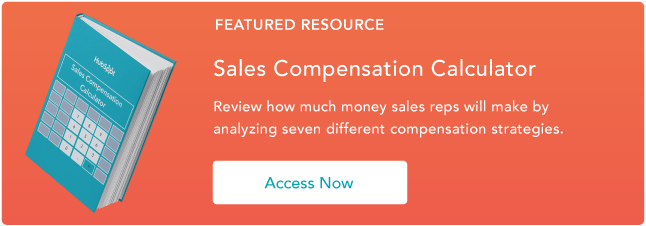Changes to the sales compensation plan may make you question if you should stay in your current job. On one hand, you’ve been at this company for a few years and know the ropes. You’re familiar with the products and services you are selling. You like your manager and the rest of the team.

But those details won’t pay the bills. Although you’ve been a top performer who’s gone to President’s Club the last two years, the current sales comp plan will make hitting your targets more difficult.
When deciding whether your sales comp plan justifies a career move, consider these eight points.
1) Your quota increased without justification
Some companies set quota by taking last year’s performance and adding a growth rate. Consequently, reps often make quota one year and miss it the next. Your quota needs to be ambitious yet realistic. It might be time to consider a change if:
- You’ve tried to renegotiate your quota and failed
- Management hasn’t shown you solid data justifying how your quota was calculated
- There aren't new products, marketing efforts, or sales tools that will help you meet this new, more aggressive quota
2) The sales comp plan is confusing or illogical
When your sales compensation plan is confusing, or competing behaviors are rewarded, it’s difficult to know where to focus your efforts.
For example, maybe an accelerator kicks in once you’ve attained 105% of quota. This aspect of the sales plan encourages you to bring in as much new business as possible. However, another clause says you’ll be paid a higher commission rate for any customer who upgrades after six months. Should you prioritize deal size now, or leave wiggle room for adding more seats later?
Trying to navigate these decisions with a poorly planned sales comp plan wastes your time and energy -- not to mention, makes hitting your targets harder.
3) The sales comp plan now has a threshold
A threshold sets a minimum standard of performance for making commission. For example, suppose your annual quota is $2 million and your threshold is $1.6 million in sales (or 80% of your goal). If you hit 79% of quota, you won’t receive any commission.
Consider not only how high your threshold is -- and whether you’re confident you can clear it -- but when it’s reset as well.
Monthly thresholds encourage you to postpone closing deals until you know you can bring in sufficient business. If you’re significantly under the threshold, you’ll wait until the next month to close your deals. This can result in a cycle of high-selling months followed by low ones.
4) It’s difficult to track your progress against the goal
There are two explanations for this phenomenon. First, sales tracking data isn’t available. Some companies still don't have an up-to-date, accessible CRM. Second, and more commonly, sales credit value isn’t determined by what you, the sales rep, control: The value of the closed sale.
Far too often, companies determine when you get credit and how much using factors you can’t control (like cash received) or complex formulas.
5) There’s a flat commission rate
With a flat commission rate, your payout percentage never varies. This approach benefits companies because it’s easy to forecast and administer. However, you’ll likely be more motivated with accelerators, which pays you an increased pay rate after you hit specific revenue targets.
To give you an idea, you might make 1.5X in commission for every dollar you sell between 100 and 110% of quota and 2X in commission for every dollar above 120%.
6) Payment on commission is excessively slow
Some companies only pay once a quarter (or even less frequently). Ideally, commission is paid monthly -- and as quickly after you’ve closed the business as possible. The longer you must wait to receive payment from a deal, the less satisfying it feels.
Quarterly payments are more reasonable with low-leverage plans, in which your Target Incentive Amount (TIC) is approximately 15%. (In other words, if you meet your quota, you’ll receive 15% of that target in commission.)
7) You can’t easily calculate how much commission you’re making
When the commission calculation involves complicated formulas and interdependent events, it’s difficult to know how much you’re making.
For example, sales credit value is determined by netting out the cost of services delivered after a long implementation or linking Product A and Product B.
In contrast, a simple formula may have rates that change in relationship with the quota, so up to 50% of goal, I am paid X%; from 50-100% of goal, I am paid Y%; and above goal I am paid Z%.
8) Management’s directions clash with the sales comp plan
A mismatch between what the commission plan is telling you to do and management is saying puts you in a difficult situation. Do you keep your manager happy or prioritize your paycheck?
This may arise because your sales manager is compensated differently than you. For instance, suppose as a rep you’re paid on cash receipt -- but your manager is paid on booking. She’d want you to book more business, but you’d be incentivized to follow up with your customers to make sure they've paid.
You and your manager should be working toward the same goals, not competing ones.
How many of these points apply to your situation? If you said "yes" to four or more, you might want to think about finding a new sales job. While there are other factors worth considering beside compensation, it’s an important aspect.






![The Ultimate Guide to Sales Compensation [New Data]](https://blog.hubspot.com/hubfs/sales-compensation-fi%20%281%29.jpg)




